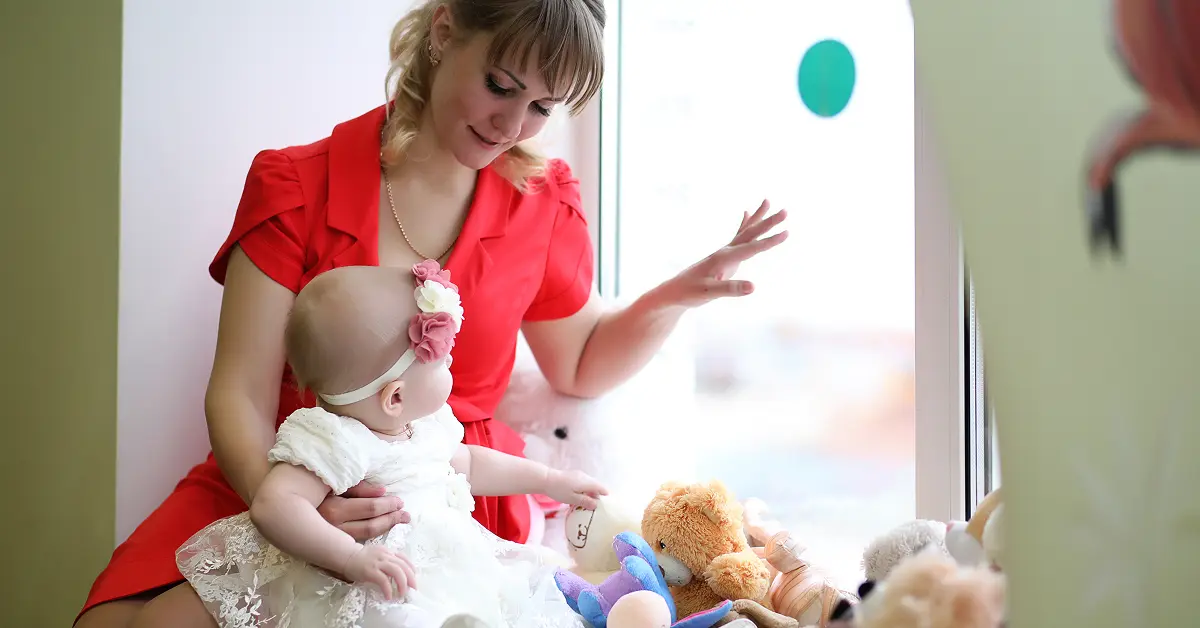Choosing between a nanny and a babysitter for your Baby Care Services is one of the most important parenting decisions you’ll make, especially in India where child-rearing is often a family affair. However, with nuclear families and working parents on the rise, more Indian households are turning to hired caregivers. But how do you decide who’s best for your baby’s emotional and developmental growth?
This blog breaks down the roles, responsibilities, qualifications, and long-term impact of nannies and babysitters, helping you choose the right kind of support tailored to your child’s needs.
Understanding the Basics: Who is a Nanny? Who is a Babysitter?

Nanny:
A nanny is a trained, often full-time caregiver who provides ongoing and structured care for a child. Nannies are usually involved in all aspects of a child’s development, including feeding, bathing, educational play, and sometimes even early learning routines. Many nannies in India are live-in, especially in metro cities like Mumbai, Delhi, and Bengaluru.
Babysitter:
A babysitter is usually hired on a part-time or ad-hoc basis to watch over your child temporarily — say, during an evening out or on weekends. Babysitters tend to supervise play and ensure safety but are not necessarily involved in developmental planning or education.
Key Differences at a Glance
| Feature | Nanny | Babysitter |
|---|---|---|
| Commitment | Long-term, regular | Short-term, irregular |
| Involvement Level | High — includes emotional & developmental | Low — mainly supervision |
| Training & Experience | Often trained in childcare & first aid | May or may not have formal training |
| Flexibility | Customised schedule | On-demand basis |
| Cost in India (Monthly) | ₹15,000 to ₹35,000 (depends on duties) | ₹200 to ₹500/hour |
Impact on Baby’s Emotional and Mental Development
Nanny: A Long-Term Bond That Nurtures Growth
Nannies often become like a second parent to the child, particularly in households where both parents work full-time. Since the relationship is consistent and personal, the child develops trust, emotional stability, and a strong sense of security.
Nannies who are trained in early childhood development also engage children in age-appropriate activities that boost motor skills, language acquisition, and cognitive growth. This is particularly important during the first 3 years of life — a period where 80% of brain development occurs.
Babysitter: Short-Term Relief, Limited Growth Support
Babysitters provide temporary relief and are ideal for emergencies or short durations, such as weddings, doctor’s appointments, or errands. While a good babysitter can certainly keep your child safe and entertained, the lack of emotional bonding and consistent routine can limit developmental growth if used as a long-term solution.
Factors to Consider for Indian Parents
- Age of the Baby: Infants and toddlers (0-3 years) benefit more from consistent and nurturing care — making a nanny the preferred choice.
- Duration and Frequency of Care: Daily 8+ hour care = Go for a nanny. Occasional 2–3 hours = Hire a babysitter.
- Family Budget: Hiring a nanny is a larger financial commitment but offers higher value in terms of child development.
- Home Environment: If you have live-in space and a stable home setting, a nanny can integrate well.
- Training and Skills: Opt for nannies with formal training or referrals from agencies or other parents.
Real-Life Scenarios in Indian Households
Scenario 1: Dual Working Parents in Bengaluru
Priya and Ramesh both work full-time and leave home by 9 am. They hired a trained nanny through a reputed agency who manages everything from feeding, bathing, storytelling, to teaching alphabets. Their 2-year-old is now well-spoken and socially confident.
Scenario 2: Stay-at-Home Mom in Jaipur
Mansi, a stay-at-home mom, only needs occasional help when running errands or attending social events. She hires a local babysitter through a neighbour’s reference. It saves costs and keeps her flexible.
Scenario 3: Freelancer Mom in Mumbai
Anita, a freelance graphic designer, works from home and needs help for 4-5 hours during client meetings. She prefers a part-time nanny instead of a babysitter, as the nanny helps engage her child in creative activities while she works.
Pros and Cons: A Quick Summary
Nanny Pros:
- Consistent emotional bonding
- Promotes overall development
- Flexible with schedule
- Reliable long-term support
Nanny Cons:
- Costlier
- Needs background verification
- Live-in may affect privacy
Babysitter Pros:
- Budget-friendly
- Great for emergencies
- Short-term commitment
Babysitter Cons:
- Limited child development support
- No emotional bonding
- Inconsistent availability
What’s Best for Your Baby’s Growth?
If your primary concern is your baby’s emotional security, mental stimulation, and habit formation, a nanny is undoubtedly the better choice. A full-time nanny who’s loving and well-trained can become a pivotal figure in your child’s formative years, offering not just care but mentorship.
However, if you are looking for occasional help, and the baby is already socially active through preschool or daycare, a babysitter may meet your needs without stretching your budget.
Tips for Making the Right Choice
- Do Background Checks: Whether nanny or babysitter, always verify identity, references, and criminal history if possible.
- Set Clear Expectations: Draft a simple contract detailing duties, timings, and rules.
- Trial Period: Begin with a trial week to observe how your baby responds to the caregiver.
- Trust Your Instincts: Sometimes, your baby’s reactions can be more telling than any resume.
Conclusion
In the end, both nannies and babysitters have their place in a family’s support system. It all boils down to your child’s age, needs, and your lifestyle. Indian parents today must balance work, budget, and emotional availability — and the right caregiving support can make all the difference. Make the decision with your baby’s long-term well-being in mind, and you’ll never go wrong.
Contents
- Understanding the Basics: Who is a Nanny? Who is a Babysitter?
- Key Differences at a Glance
- Impact on Baby’s Emotional and Mental Development
- Factors to Consider for Indian Parents
- Real-Life Scenarios in Indian Households
- Pros and Cons: A Quick Summary
- What’s Best for Your Baby’s Growth?
- Tips for Making the Right Choice
- Conclusion
Our 24*7 services
Latest Posts
- What Is Respite Care and Why Is It Important
- Affordable home care for senior citizens in India
- Caring for Seniors with Dementia or Alzheimer's at Home
- Senior Caregiving A Guide for Every Family
- How to Write a Caregiver Resume That Gets You Hired
- How Care After Hospital Discharge Speeds Up Recovery at Home
- How to Get Home Health Care for Seniors Through Medicare
- What Does a Senior Citizen Caregiver Really Do at Home
- How to Care for Elderly Parents with Alzheimer’s or Dementia
- How to Get 24-Hour Care for Seniors at Home



